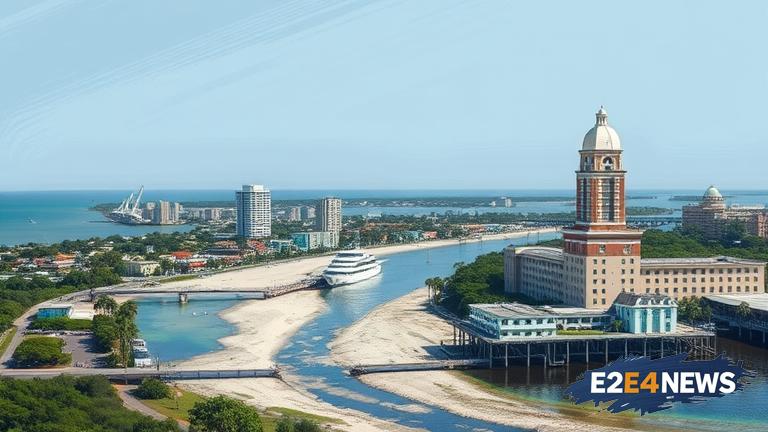Pensacola, a city located in the panhandle of Florida, is facing a growing concern as young professionals are increasingly leaving the area in search of better opportunities. According to recent data, the city is experiencing a brain drain, with many of its talented and educated young residents opting to relocate to other parts of the state or country. This trend is not only affecting the local economy but also raising concerns about the city’s ability to attract and retain top talent. The reasons behind this exodus are multifaceted, with some citing limited job opportunities, low pay, and a lack of cultural and entertainment options as major factors. Others point to the city’s perceived lack of diversity and inclusivity, as well as its limited access to quality education and healthcare. Despite its natural beauty and rich history, Pensacola is struggling to compete with other cities in Florida, such as Miami and Tampa, which offer more vibrant cultural scenes and better career prospects. The city’s leaders are now looking to reverse this trend by investing in initiatives that promote economic development, improve quality of life, and enhance the overall attractiveness of the area. This includes efforts to revitalize the downtown area, support local businesses, and create more job opportunities in emerging industries such as tech and healthcare. Additionally, there is a growing recognition of the need to address the city’s diversity and inclusivity issues, with a focus on creating a more welcoming and inclusive environment for people of all backgrounds. The city is also exploring ways to improve its education system, including the development of new schools and programs that cater to the needs of young professionals and families. Furthermore, there are plans to enhance the city’s cultural scene, with the development of new arts and entertainment venues, as well as the promotion of local events and festivals. However, reversing the trend of young professionals leaving Pensacola will require a sustained effort and commitment from the city’s leaders, businesses, and residents. It will also require a willingness to think creatively and outside the box, to develop innovative solutions that address the complex challenges facing the city. Some potential strategies could include offering incentives for young professionals to stay, such as student loan forgiveness programs or tax breaks, as well as investing in initiatives that promote entrepreneurship and small business development. The city could also benefit from developing stronger partnerships with local universities and colleges, to create more opportunities for internships, job training, and career advancement. Moreover, there is a need to improve the city’s infrastructure, including its transportation systems, public spaces, and community facilities, to make it more attractive and livable for young professionals. By taking a comprehensive and multi-faceted approach, Pensacola can work to reverse the trend of young professionals leaving the city and create a more vibrant, diverse, and prosperous community for all. The city’s future depends on its ability to attract and retain top talent, and it is imperative that leaders take bold and innovative steps to address this challenge. With the right strategies and investments, Pensacola can become a thriving and dynamic city that offers young professionals the opportunities, amenities, and quality of life they desire. The brain drain affecting Pensacola is a wake-up call for the city’s leaders and residents, and it requires a collective effort to address the underlying issues and create a better future for all. Ultimately, the success of Pensacola will depend on its ability to adapt, innovate, and evolve, to create a city that is attractive, inclusive, and supportive of the needs and aspirations of young professionals.
